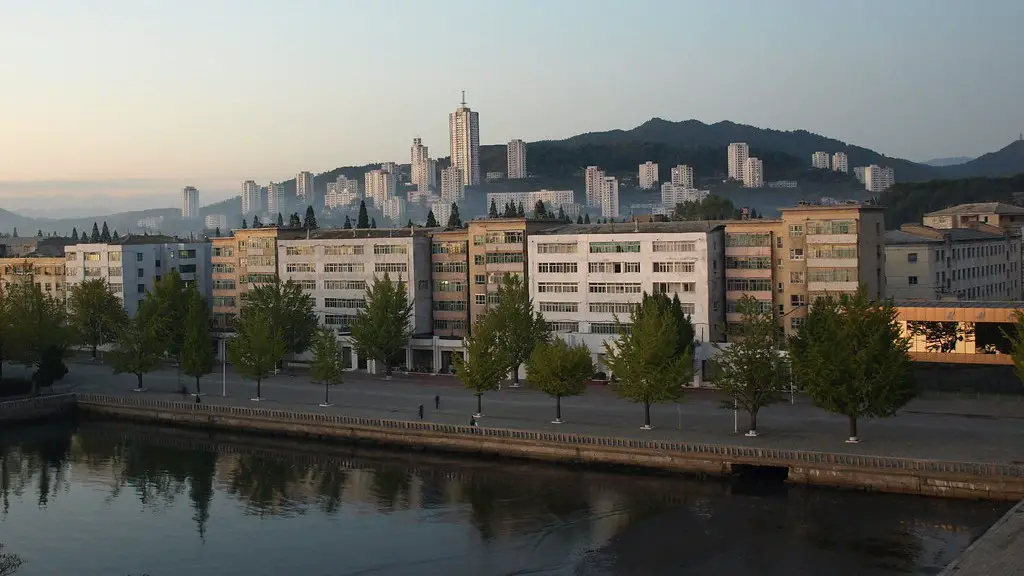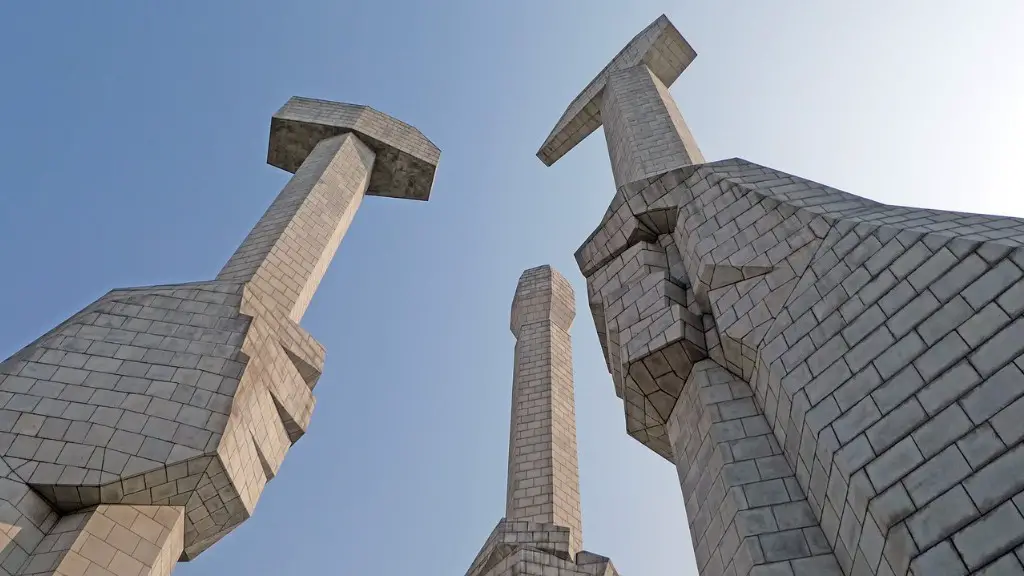North Korea
North Korea has been in the global spotlight since the late 1940s when the country was created. It has since been marked by numerous international disputes and along with these its ongoing nuclear program. Although North Korea’s military program is one of its great spectacles, its economy has recently been in the crosshairs as the country is in its sixth consecutive year of economic recession. The country is also facing more and more isolation due to sanctions from the United Nations and the United States.
The majority of North Korean citizens are impoverished and suffer from a lack of resources and modern technology, which further deepens their situation. In addition to its economic woes, North Korea is accused of many human rights abuses and violations including a lack of freedom of speech and movement, and forced labor. For these reasons, North Korea has been labeled as one of the world’s most oppressive and authoritarian regimes.
The main challenge in addressing the North Korean situation comes from understanding the many complex and intricate factors that contribute to the issue. The issue of the North Korean nuclear threat, for example, is not easily resolved. Although the international community is pressuring North Korea to put an end to its nuclear program, the stability of the country is yet to be secured. In addition, the reluctance of the international community to take firm action has posed a significant obstacle in achieving concrete results.
One of the most highly discussed actions to address the North Korean situation is dialogue. The countries most affected by the issue are attempting to build relations with North Korea, thus striving to create a more peaceful environment. Other initiatives include humanitarian aid and sanctions, which are largely seen as less effective. For example, the United Nations’ comprehensive sanctions have yet to fundamentally alter the situation in the country and its surrounding region.
Although the North Korean situation is typically viewed as a major point of contention between great powers, it is likely that the biggest victims are the citizens of the country. Political analysts claim that any long-term solutions need to prioritize the rights, liberties and opportunities of the North Korean people. It is essential to keep in mind that the people of North Korea are just as essential to the resolution of this problem as the governments of countries involved.
Pressure on North Korea and Its People
The current North Korean situation puts immense and untold pressure not only on the nation’s politics, economy and military, but also on its citizens. Many North Korean citizens have fled abroad in search of better opportunities. In some cases, citizen-initiated solutions and solutions of the civil society have emerged, including underground market trading and grassroots self-help programs.
North Korean citizens who remain in their country must often resort to traveling in search of sustenance. This journey is filled with high risks and hardships. Although the journey is often successful, it also brings with it added risk of being apprehended and jailed by the North Korean authorities. Furthermore, many citizens that manage to survive their journey abroad may find their freedom to be limited in their destination country.
To address such hardships, an essential starting point is to allow North Korean citizens access to information. Currently, the North Korean regime cuts its citizens off from access to the world. This severely limits their ability to gain insight into the international community and better understand the human rights abuses which have befallen them.
Advocates of information equality are hoping to make a stand against North Korean’s oppressive regime by advocating for free access to the internet. Such tools could allow North Korean citizens to access information from the outside world and would turn North Korea into one of the few countries in the world where citizens have access to such tools.
The initiatives that have been detailed have largely relied on foreign powers. It is important to note, however, that the North Korean citizens themselves are the only ones who can challenge the system and mobilize to fight for their rights.
International Solutions
The international community is also looking for solutions to the North Korean situation. Among the most debated courses of action is the prospect of economic sanctions. Currently, the United Nations has issued the toughest possible sanctions against North Korea to date.
However, the sanctions have failed to make any significant difference in the North Korean regime’s policies and its nuclear ambitions. In addition, the sanctions have increased the pressure on the poor North Korean citizens, who are already living in a state of famine and deprivation.
The international community has also proposed that economic aid be sent to North Korea in exchange for an end to its nuclear program. China has also taken action by leading the formation of a “Six Nation” framework to resolve the issue.
However, the attempts at negotiations and appeasing the North Korean regime have met limited success. The situation is too complicated to be solved easily and there are numerous experts who believe that any solution must involve more drastic measures.
The international community must take into account the rights and freedoms of its citizens as well as the responsibilities of its government if it hopes to resolve this complex situation.
U.S. Interests
The United States has been a major player in the North Korean story since the country was created in 1948. The U.S. has supported South Korea in the Korean War, placed sanctions against the North Korean regime, and interfered with its economy.
The U.S. has also backed international plans to resolve the issue and provided economic aid to both North and South Korea. The two countries have exchanged prisoners as part of diplomatic efforts, but tensions between U.S. and North Korea persist and the future of both countries remains uncertain.
In the United States, the focus on the North Korean issue is mainly motivated by the country’s continued development of nuclear weapons. The US is worried that the North Korean government may target US allies, or even the US itself, and has of late implemented an array of initiatives to protect itself from the North Korean threat.
Although the North Korean situation is primarily seen as a security problem for the United States, there are other aspects of the issue that it should take into consideration. Many organizations have argued that the US should take a more humanitarian stance towards the North Korean people and that it should prioritize their well-being when formulating its policy.
Conclusion
The North Korean issue is complicated as it involves a multitude of factors from both national and international dimensions. Although the international community is taking active steps to address the situation, the solution has yet to be found.
The North Korean people are the ones who have the most to lose in this conflict and it is essential that their voice is heard. Therefore, the international community must take into account the needs and rights of the North Korean people when forming a resolution. In addition, there must be an emphasis on dialogue and cooperation between all players involved in the conflict. Only through a comprehensive solution can the North Korean situation be resolved.





